Hasivo S600W-5XGT-1SX-SE Web Management
One challenge folks may run into with this switch is how to get to the web management. The default IP address and login are not printed on the box or the switch.
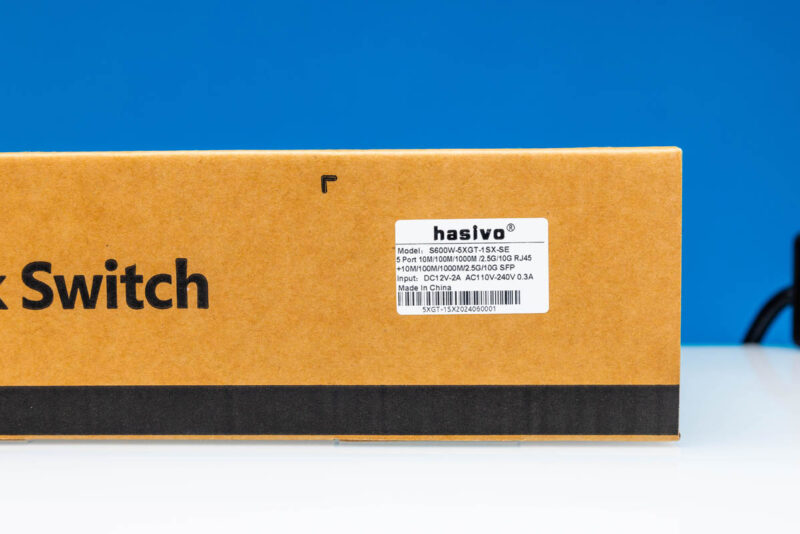
Heading to 192.168.0.1 the login is admin / admin. You may need to change your network and assign the machine you are using to 192.168.0.2 to access the interface. Once logged in, Hasivo does not force even a password update. That is not the best for security to allow folks to use admin / admin as default, and then continue to use it after.
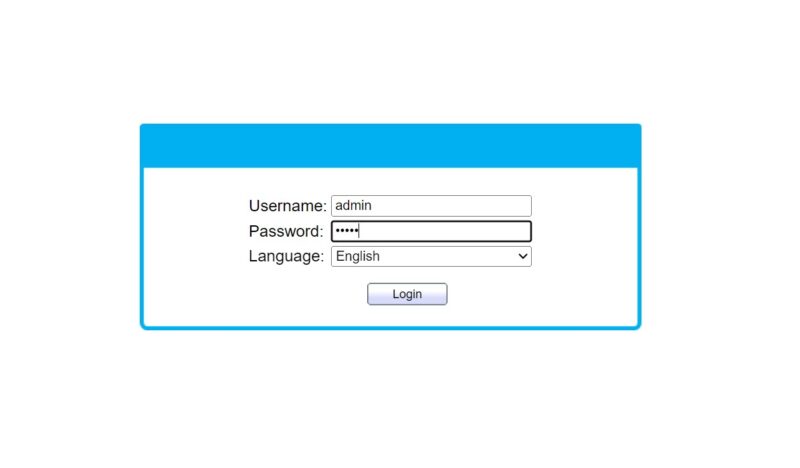
Once logged in, we get a variety of options on this web-managed switch. We showed, a bit more in the video.
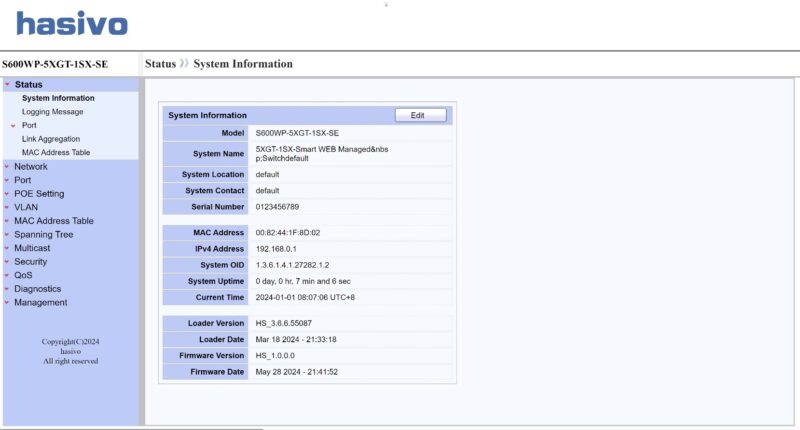
If you want a decent sense of what is here, check out our Hasivo S1100WP-8XGT-SE review. That switch also uses the Realtek RTL9303, but with eight ports it costs over $100 more than this one.
Hasivo S600W-5XGT-1SX-SE Performance
In terms of performance, here is what we saw:
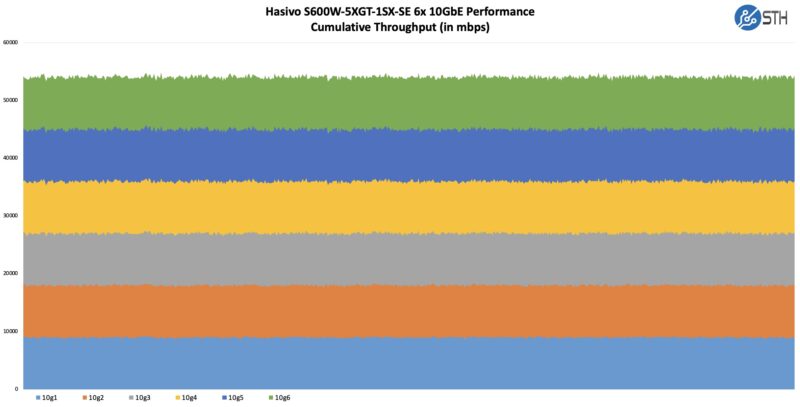
Perhaps the only notable difference is that we saw a few mbps better on the SFP+ port versus the 10Gbase-T ports, but all are in that 10GbE range. That was consistent on both the PoE and non-PoE version of the switch.
Hasivo S600W-5XGT-1SX-SE Power Consumption and Noise
Onto the power consumption. At idle, we saw power consumption of 7.6W. That is about 1.7W lower than the PoE version.
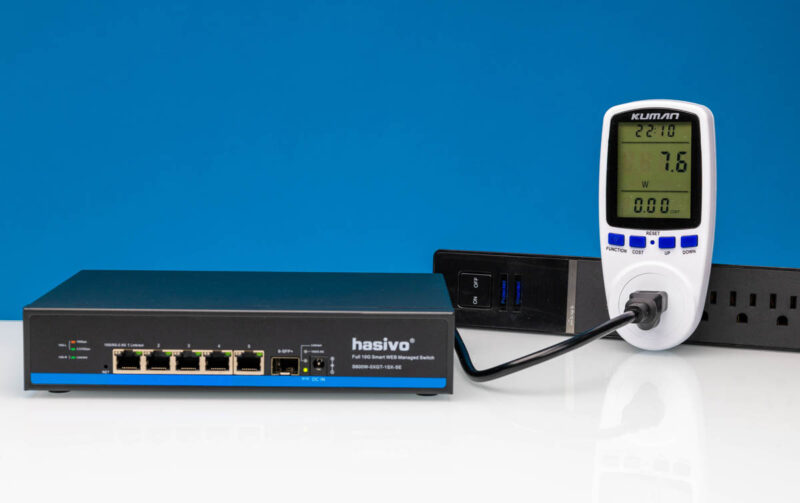
Allowing this to link at 10GbE speeds, we got to 10.3W for around 2.7W per port and also 2W lower than the PoE version.
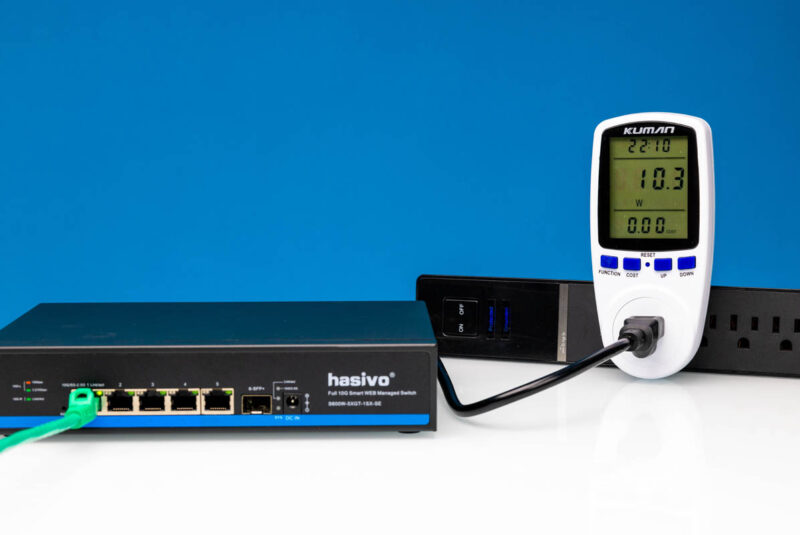
As a fun one, we used our SFP+ to 10Gbase-T adapter and we saw 10.0W so the adapter was more efficient than the local PHY.

In terms of noise, in our 34dba noise floor studio we were seeing 40-43dba with this switch.
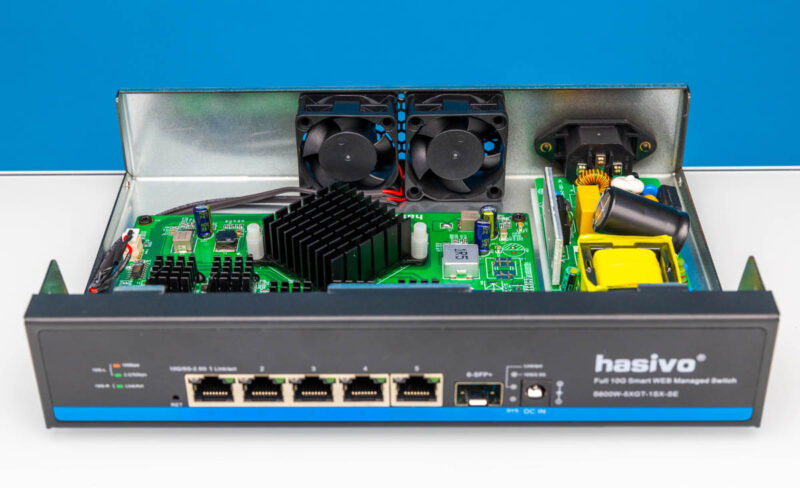
It is loud enough that it is fine in a closet or out of the way, but neither Patrick nor I think it is something we would want sitting on our desks. The PoE version was the same, and that is what makes not having two 3-pin or 4-pin fan headers a bit rougher since a 10-20W device does not need to have loud fans. That is an important observation given that it comes with rubber feet and rack ears that do not fit nicely in a 19″ rack.
Final Words
If you do not need 10Gbase-T PoE ports, then this is probably the better switch. It is lower power and has the extra DC power input. It is also less expensive often selling for under $195 with the discount of the day. There are going to be many who will look at the $35 or so price delta and just pickup the PoE version. If you simply do not need or want the PoE feature, then saving a few dollars here as well as a few watts of power consumption can be useful.
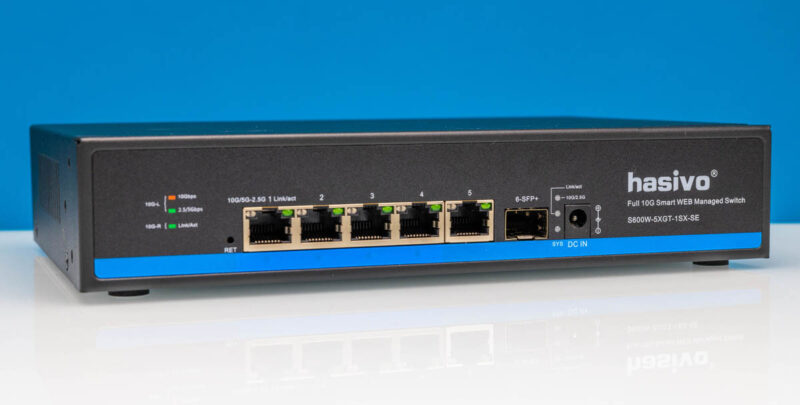
The complete lack of regulatory markings, strange-sized rack ears, and so forth are certainly concerns. Still, aside from those, the switch has worked for us for a few months now.
We thought after reviewing the PoE version that we needed to review this one. It is less expensive and without a major feature, but hopefully folks found this interesting.
Where to Buy
You can find these on AliExpress here (Affiliate link.) The link should have a toggle for the PoE and non-PoE version if you want to compare prices.

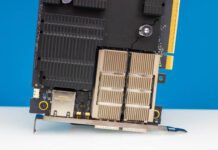
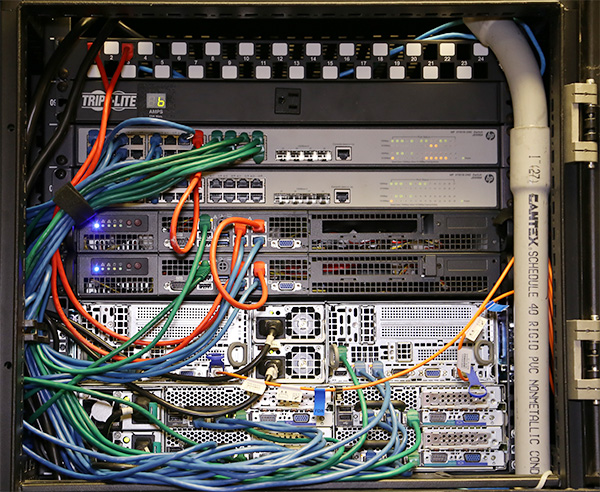
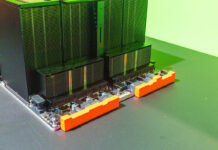
Same price from aliexpress to Europe as the 8 port version you had 2 weeks ago. Where exactly does this warrant the “cheap” tag ?
It sucks that EU regulation adds 50-70% to the cost…… but it’s the price we pay.
The switch is about 280 Euro according to my Ali app. So quite a bit more than the mentioned 200 Dollar.
For that price tag there are 8 Port Switches available